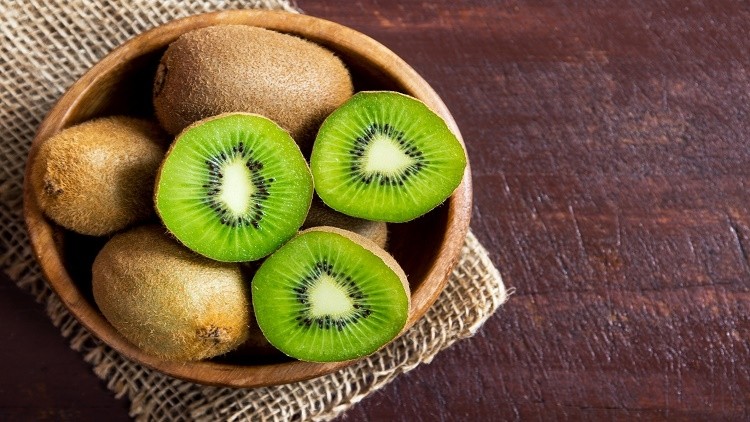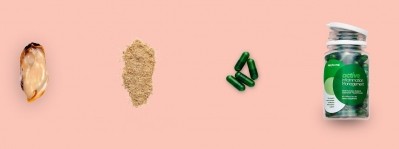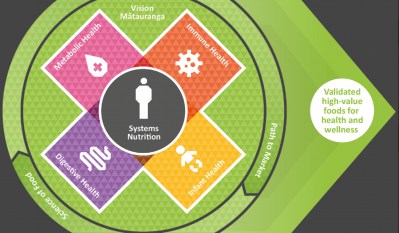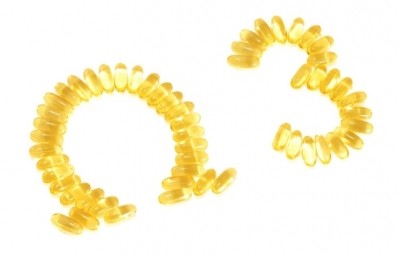Healthy Ageing APAC Summit 2019
Kiwi, beef and mussel: New Zealand High Value Challenge highlights functional benefits to boost exports

The High-Value Nutrition National Science Challenge is a 10-year government-funded initiative which will wrap up in year 2024. It aims to transform the reputation of New Zealand’s foods from “safe” to “safe and good for health”.
The hope is that this will in turn drive greater food exports.
Challenge director Joanne Todd highlighted three prominent studies conducted as part of the project when speaking at the Healthy Ageing APAC Summit organised by NutraIngredients-Asia and FoodNavigator-Asia.
The following are highlights from the research that the challenge has conducted on the kiwi fruit, grass-fed Wagyu beef, and greenshell mussels.
1. Kiwi fruit
One of the projects looked at improving exports of the kiwi fruit by proving its ability to provide vitamin C without causing a sugar spike.
This three-year project started off with an insight from Zespri – a local kiwi fruit producer – that the sales of kiwi fruit had dropped due to heightened consumer awareness of its high sugar and fructose content.
“It is increasingly difficult to sell the sugar-rich, fructose rich-fruit in markets that are increasingly glucose intolerant, sugar conscious and aware of risk factors for metabolic syndrome, including excess fructose consumption.
“And so we have decided to address this, as the Kiwi fruit is also very important for New Zealand’s exports,” Todd said.
Three clinical trials which looked at the impact of kiwi fruit on glucose levels and water control ability in healthy and pre-diabetic consumers were conducted.
It was found that despite leading to a higher fructose intake, the consumption of two kiwi fruits per day did not result in adverse metabolic effects.
As such, the fruit may be used as a valuable source of dietary vitamin C without causing glycaemic penalty.
2. Grass-fed Wagyu beef
Another project looked at the composition of grass-fed Vs grain-fed Wagyu beef reared by local cattle farm First Light and the impact on human health.
It was found that grass-fed Wagyu beef contained a higher amount of phospholipids and long-chain omega-3 fatty acids than grain-fed beef breeds.
For instance, in females, consuming 100g of grass-fed Wagyu beef provides about 30% more EPA, DHA, and DPA than grain-fed Wagyu beef.
In males, the difference is slightly lower, with grass-fed Wagyu beef providing about 20% more EPA, DHA, and DPA than grain-fed Wagyu beef.
Another human clinical study with pending outcomes aims to further find out the ability of grass-fed Wagyu beef in increasing plasma long-chain omega-3 fatty acid concentration and increasing the particle size of low-density lipoproteins (LDL).
3. Greenshell Mussel
A study on greenshell mussels was also a highlight of the research project.
The aim was to find out if greenshell mussels could improve joint and bone health and in turn, drive the exports of foods containing the greenshell mussels.
Also a three-year project, the first portion found that the fats, carbohydrates, protein, and moisture levels of greenshell mussels varied in different seasons.
“Interestingly, it is noticed that the composition of the greenshell mussel is affected by the time of the year. The gender of the mussel, whether it is male or female and its age also play a role, so this is really very important information in terms of harvesting the mussels,” Todd said, adding that a screening device was developed to harvest high value mussels.
She revealed that the next stage of the project was to study the bioavailability of the bioactives within greenshell mussels in different health food formats, and the best way to deliver the bioactives.


















